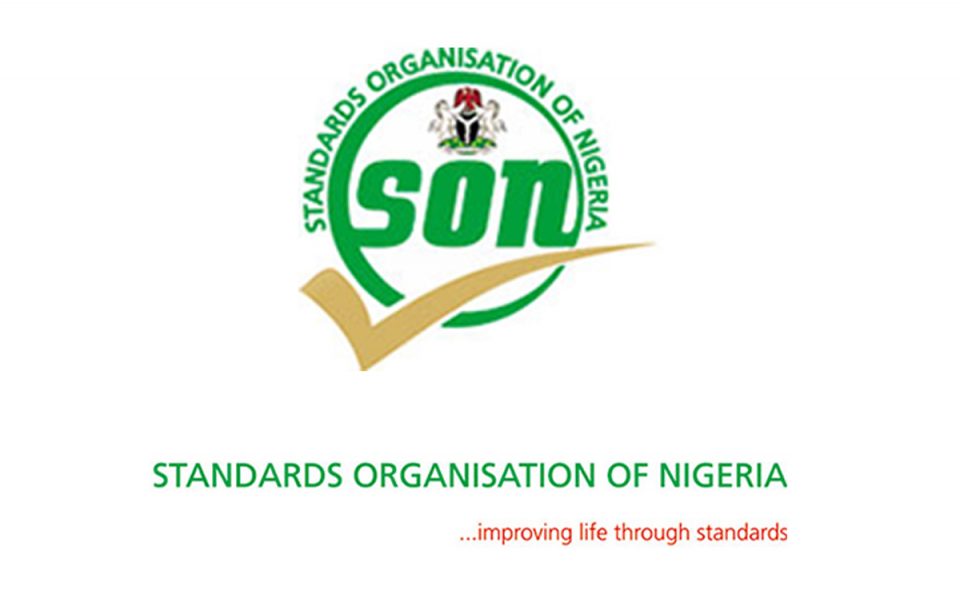The Standards Organisation of Nigeria (SON) has said that it has no fewer than 15 cases of defaulting importers and manufacturers of substandard products awaiting prosecution in the court.
Mr Bola Fashina, Special Assistant to SON Director-General, disclosed this on Thursday in Abuja.
Speaking on the volume of substandard products confiscated or destroyed in 2019, he said SON has a rule not to talk about substandard products apprehended in monetary terms.
He said the reason was in order not to discourage Foreign Direct Investment (FDI) into Nigeria.
Furthermore, he said that some impounded substandard products could go through rectification under its supervision while only irredeemable ones were destroyed eventually.
“But in all, they run into hundreds of millions of Naira,’’ he said.
On December 2019, SON destroyed 5,000 substandard Liquefied Petroleum Gas (LPG) cylinders worth N51.3 million in Lagos.
Fashina said that as at 2019, SON had close to 15 cases that were ongoing in various courts including substandard LPG cylinders which had about three ongoing cases.
“We take the defaulters once apprehended to the court for the law to take its course; we present the facts of the case to the court and leave the rest for the judiciary to determine,’’ he said.
The special adviser said that the issue of LPG cylinders had been on the front burner and SON had been monitoring for sometime because the products were classified as life endangering.
“We pay special attention to life endangering products such as LPG cylinders, iron rods, electrical materials such as cable wires and we have a very tedious procedure for certifying LPG cylinders to be imported into Nigeria.
“That procedure involves that competent officers have to go to the facility where that product is being produced from before we can approve that it can be exported into Nigeria.
“And for those that are manufactured in Nigeria, we also have the same rigorous process for inspection and certifying the products before they can be put into the market,” he said.
Speaking on the recent raid on substandard LPG cans in Lagos, he said that the cylinders that were destroyed were in different categories adding that a lot of them were cylinders that had already expired.
According to Fashina, life span of cylinders in Nigeria is 15 years, within those 15 years life span all LPG cylinders must be re-qualified twice.
“After the first five years, they must be re-qualified, after the next five years which makes it 10 years they must also be re-qualified. Once they are 15 years they are supposed to be withdrawn from circulation,’’ he added.
He further explained that a lot of those that were seized and destroyed were expired cylinders that were imported into the country while many of them were actually new cylinders.
He said that some of them were even cylinders that SON gave approval to but 12.5 kg cylinders were brought in as camping gas which was totally wrong and out of the approval that it gave.
Fashina noted that the highest volume of cylinder that could be used as camping gas was 6.25 kg to avoid explosion and fire incidents.
According to him, this is because when you put 12.5kg as camping gas you are exposing that volume of gas to direct heat which is against the requirement of the standard.
“That is the reason those consignments are seized and destroyed. They are destroyed so that they will not go back to into the market.
“As for those who brought in the cylinders, they are undergoing prosecution,’’ he said.
He said that a lot of the products seized by SON were based on information from well meaning Nigerians.
He further noted that many cylinders came into the country because SON did not have all that was required to stop them at the point of entry at the ports.
“Some of them are also smuggled in during public holidays and at nights through land borders; those are some of the reasons the government shut the land borders for sometime.
“But wherever they are, the law permits us to visit and check any premises where such commercial activities are being undertaken, whether it is a warehouse, a company or even a living apartment, once we suspect anything.
“We get some of them while they are being transported, when we check their documents we will find out that what is declared on the document to clear them from the port is different from what is inside the containers.
“But once the products are destroyed they cannot go back to the market because they are actually going to be recycled,’’ he said.
Advising the manufacturers, Fashina urged them to keep to the rules of the game by ensuring that they met the minimum requirement of standard.




